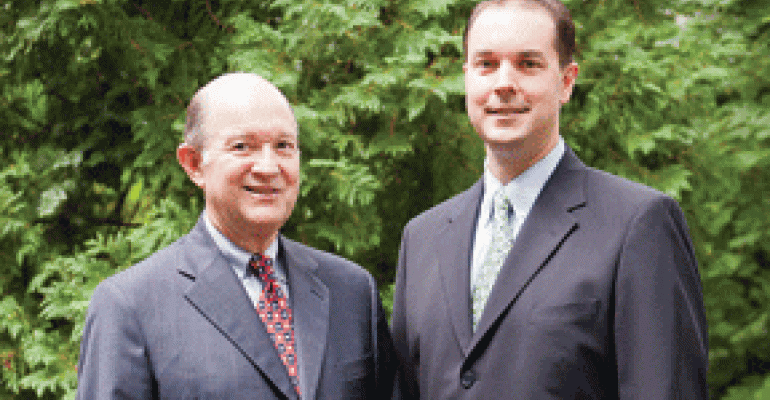
Edward J. Kohlhepp Sr., 68, a hybrid advisor based in Doylestown, Pa., decided to bring his son, now 41, into his practice about 12 years ago as part of a succession plan.
Registered Rep.: How did you decide to bring your son into the practice?
Edward J. Kohlhepp Sr.: In 1998, when I broke loose from another firm, I was just getting re-established, making sure my clients came with me and all that. Then after about a year and a half, I was taking on more clients than I could handle and I needed the help. At that point, my son had worked for several other firms, including Disney and Vanguard, so he had very good experience there. So I extended the overture to him rather than see him leave for somewhere else. One of the key things that worked for us is trying to divide the business relationship from the family relationship. We also had the understanding from the beginning that if he was ever unhappy, it wouldn't split up the family if he decided to leave.
RR: Did you consider other options for succession planning?
EK Sr.: Well, the options were merging with another firm, or bringing on another successor, a non-family member. None of them fit for us. Having his loyalty back at the office enables me to take a fair amount of vacation. So I can trust the office is going to be run smoothly when I'm not there. My retirement mode is right now; I'm retired in my business. If I can take six to eight weeks of vacation and golf 30 or 40 times a year, why would I retire?
RR: What were the other benefits of going with a family succession plan?
EK Sr.: From the standpoint of succession, it's kind of a built-in succession, but it's not something that you have to work at. In many other firms where a successor is coming on, they have the hurdle of dealing with, ‘well, is that younger person going to stay forever?’ It's just an additional hurdle that we don't have to deal with.
RR: You have about 85 to 90 percent fee-based business, with the rest commissions. What do you like about the hybrid model?
EK Sr.: Even though our broker/dealer (Cambridge) is not trying to convince us to tag onto their RIA, they offer that as an option. And we review that at least once a year, because the compliance burdens and costs of being your own RIA are significant. We would probably save some money if we gave up our own RIA and went to the broker/dealer's. However, we believe we'd lose some independence.


